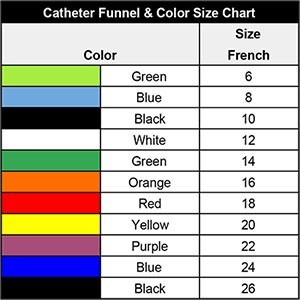Prior to an invasive examination of a hospitalized client, a consent form should be obtained. Which action best describes the responsibility of the practical nurse (PN)?
Explains the examination and asks the client to sign the consent form.
Obtains the medical record for the correct signed consent form prior to the examination.
Asks if the client understands the exam and why the consent form must be signed.
Witnesses the client's signature on the consent form after it is explained by the provider.
The Correct Answer is D
This is the best action that describes the responsibility of the PN because it ensures that the client has given informed consent for the invasive examination and that the consent form is valid and documented. The PN should verify that the provider has explained the examination, its risks and benefits, and alternative options to the client and that the client has agreed to proceed.
Nursing Test Bank
Naxlex Comprehensive Predictor Exams
Related Questions
Correct Answer is C
Explanation
This is the first action that the PN should take because the catheter size and balloon volume are inappropriate for the client. A #18 urinary catheter is too large for a female client who weighs 50 kg, and a 30 mL balloon may cause bladder trauma or discomfort. The PN should consult with the charge nurse and obtain a smaller catheter (such as #14 or #16) with a 10 mL balloon.

A. Obtaining a 30 mL syringe and a vial of sterile water is not the first action because it does not address the issue of the catheter size and balloon volume.
B. Asking the client if she has previously been catheterized is not the first action because it does not address the issue of the catheter size and balloon volume.
D. Positioning the client and observing the urinary meatus is not the first action because it does not address the issue of the catheter size and balloon volume.
Correct Answer is A
Explanation
The correct answer is Choice A:
"Are you planning to obey the voices?.”. Choice A rationale:
The PN should ask the client if he plans to obey the voices because it helps assess the potential risk of harm to himself or others. If the client indicates an intention to follow the voices' commands to harm someone, it indicates a serious concern for safety and may require immediate intervention to protect the client and others.
Choice B rationale:
While asking if the client believes the voices are real is important for understanding the client's perception of the situation, it may not immediately address the risk of harm that the client or others might be facing.
Choice C rationale:
Asking if the client has taken any hallucinogens is relevant to explore possible substance- induced psychosis, but this question should be asked later in the assessment process. The priority is to assess immediate safety concerns related to the client's compliance with the voices' instructions.
Choice D rationale:
Inquiring about when the voices began is important, but it is not the most urgent question in this situation. Although the onset of the symptoms is relevant, addressing the potential for harmful actions should be prioritized.
Whether you are a student looking to ace your exams or a practicing nurse seeking to enhance your expertise , our nursing education contents will empower you with the confidence and competence to make a difference in the lives of patients and become a respected leader in the healthcare field.
Visit Naxlex, invest in your future and unlock endless possibilities with our unparalleled nursing education contents today
Report Wrong Answer on the Current Question
Do you disagree with the answer? If yes, what is your expected answer? Explain.
Kindly be descriptive with the issue you are facing.
